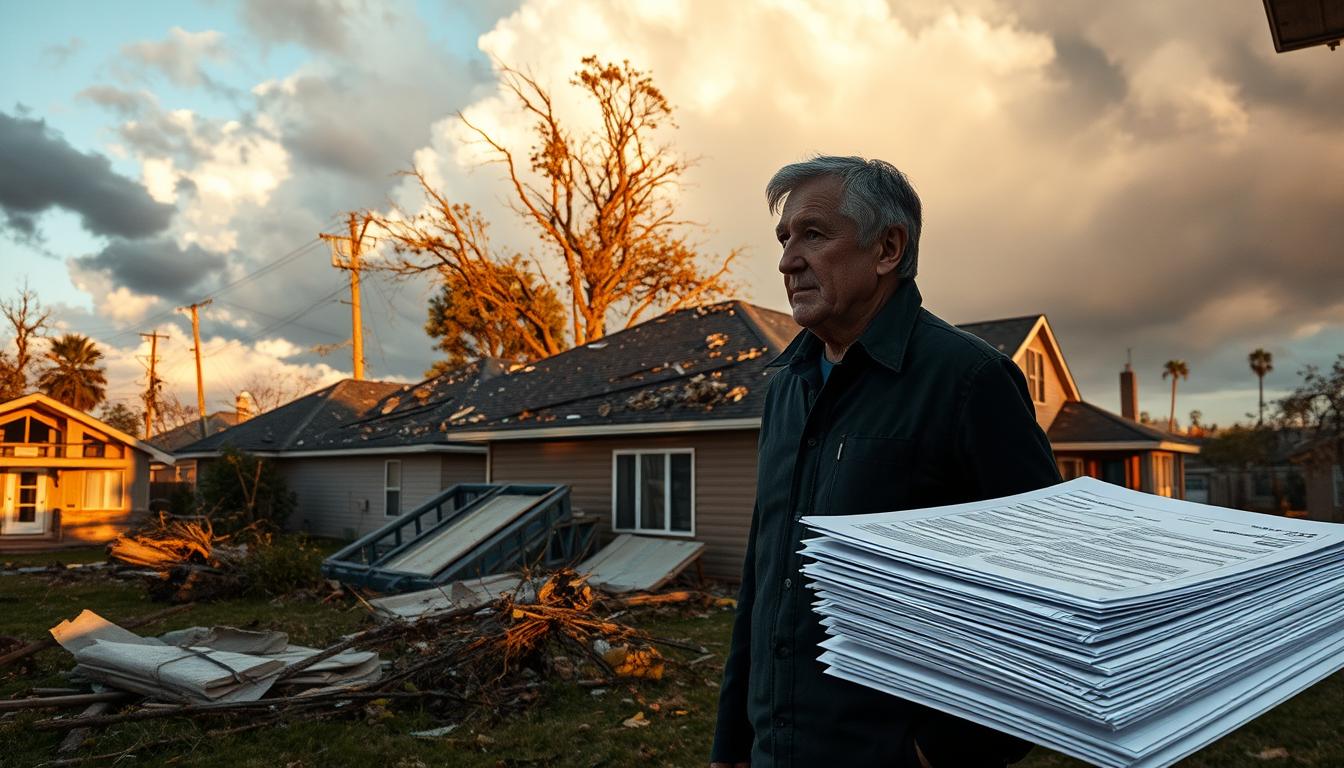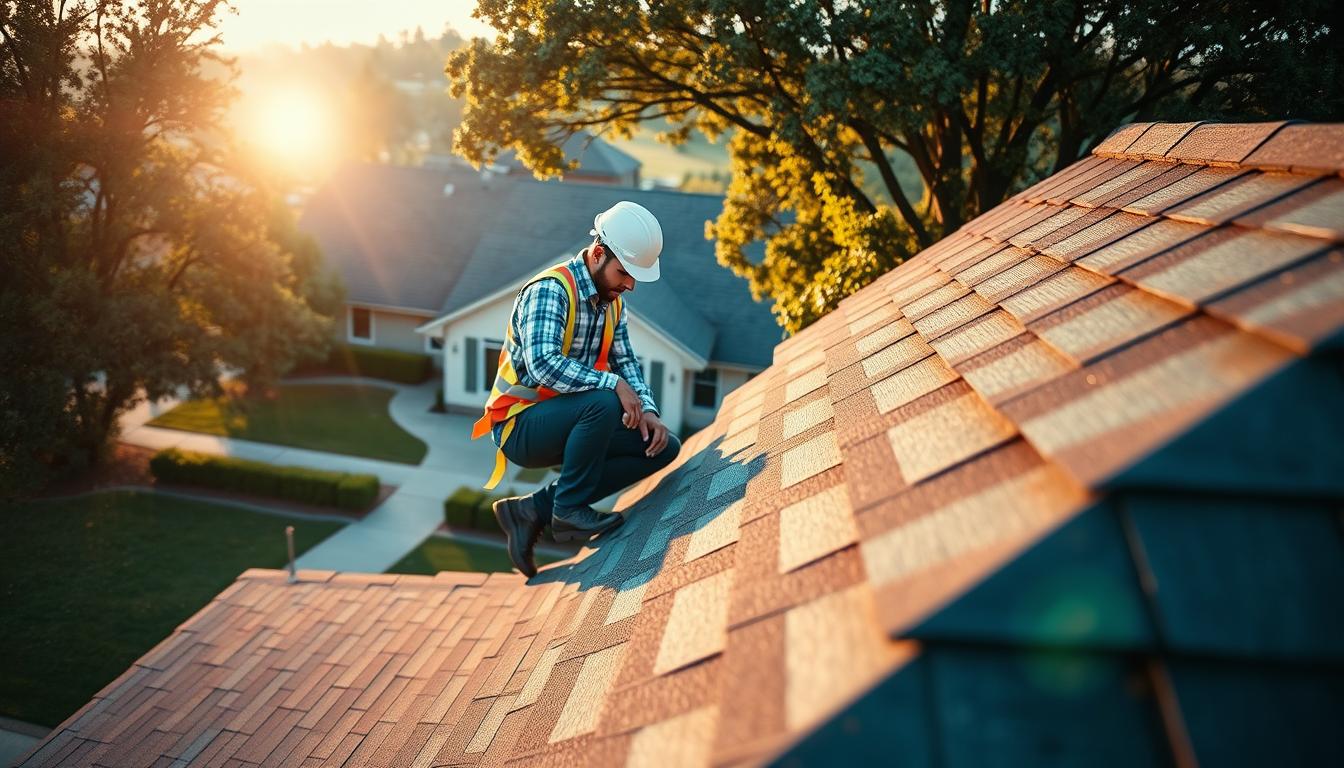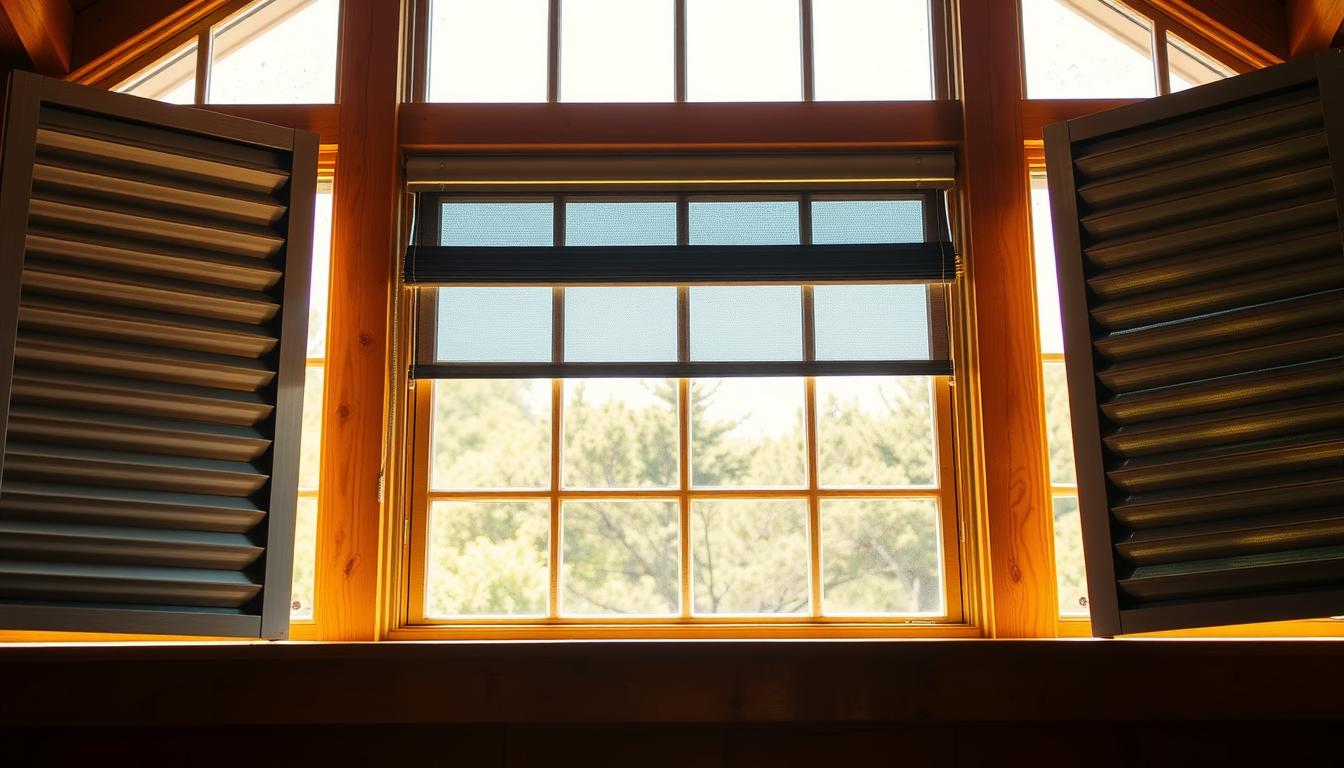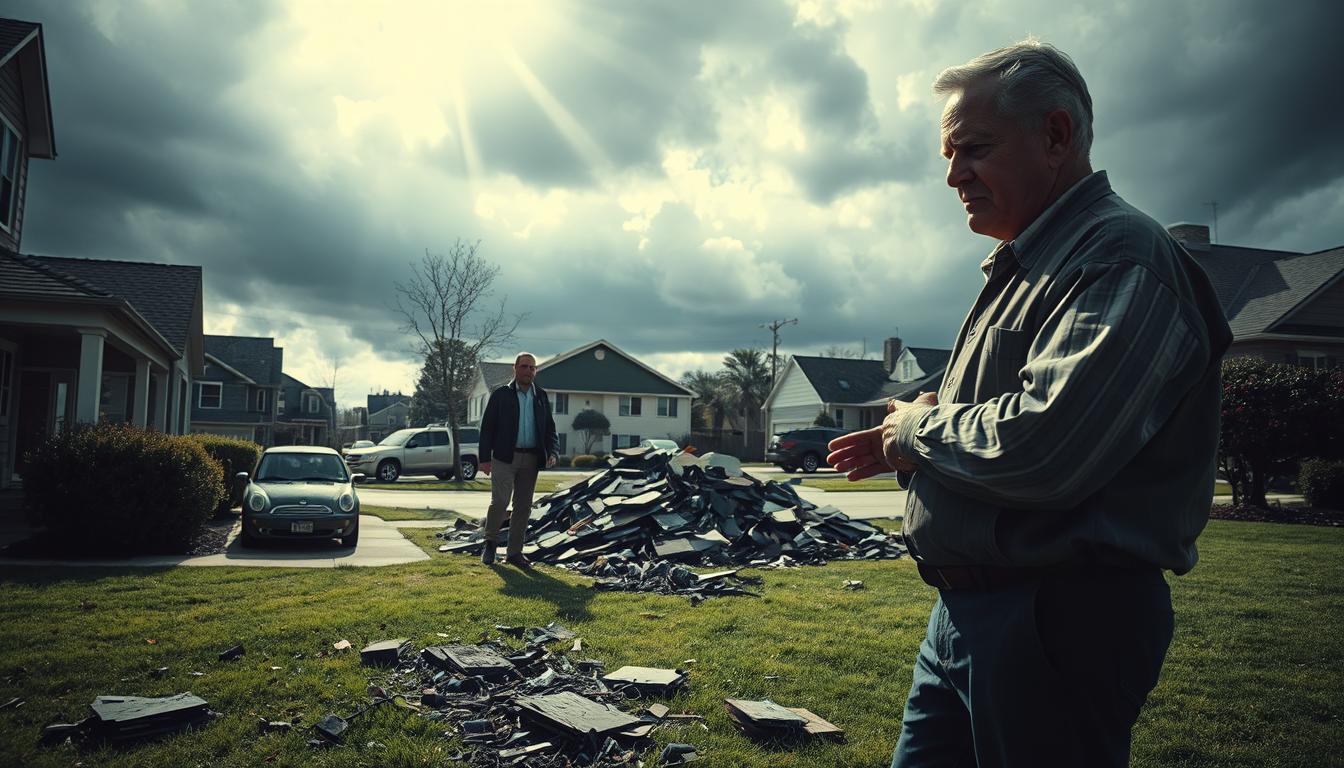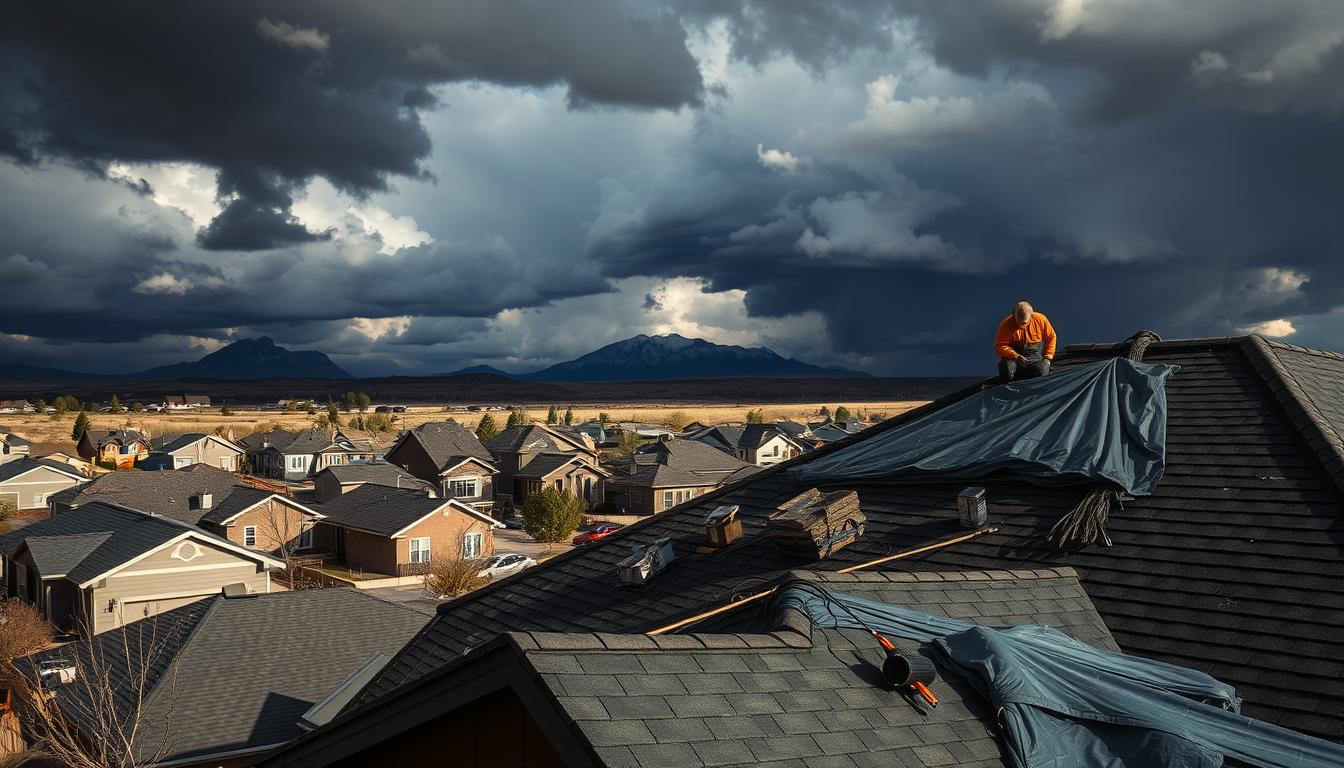When storms hit, we often see the obvious damage. But the real danger is hidden. It’s crucial to act fast to protect your home and money.
Even small storm damage can lead to big repair costs. Waiting to file your insurance claim can be risky. In just a day or two, hidden water damage can cause mold and harm your home’s structure.
It’s important to document storm damage right away. Experts say inspections can find up to 50% more damage than you might see. Quick action helps avoid problems and saves money on repairs.
Key Takeaways
- Storm damage can cause hidden structural issues within hours
- Document damage immediately with photos and videos
- File insurance claims promptly to maximize potential compensation
- Professional inspections reveal critical damage homeowners might miss
- Delay in claims can increase repair costs by 10% monthly
Understanding the Immediate Risks of Untreated Storm Damage
Storm damage can quickly turn into a big financial problem. The Insurance Information Institute says wind and hail damage are the top claims for homeowners from 2014 to 2018. It’s important to know the risks of not acting fast to prepare for natural disasters.
When storms hit, homeowners face many challenges. These go beyond what you can see right away. Wind damage coverage is key to protect your property from serious harm.
Common Types of Visible Storm Damage
- Roof shingle displacement
- Broken windows
- Exterior siding damage
- Fallen tree limbs
- Landscape destruction
Hidden Structural Concerns After Storms
Not all storm damage shows up right away. Subtle structural issues can develop silently, compromising your home’s integrity. Problems like water intrusion, foundation weakening, and electrical system damage might not be seen without a professional check.
The Ripple Effect of Delayed Response
Waiting to file hail damage claims can make repair costs much higher. Water getting in can cause mold, wood rot, and damage to the structure. It’s key to act fast, document all damage well, and get a professional to check it out. This helps with insurance claims and keeps your property’s value safe.
Studies show that acting quickly improves your chances of getting compensation. Homeowners should document all damage well to support their insurance claims and protect their property’s value.
Critical First Steps After Storm Damage
When disaster hits, knowing what to do first is key. Recent tornadoes in Texas show how fast we must act. In June 2023, tornadoes destroyed many places, showing how severe weather can be.
Your safety is most important. Here are the first steps to take after storm damage:
- Stay indoors until the storm is over
- Unplug big appliances to avoid damage from power surges
- Don’t use candles or open flames
- Look for any structural dangers right away
It’s vital to document the damage for insurance. Take photos of all damage to your property. This includes roof damage, broken windows, and water damage. These photos are important for insurance claims.
Getting a professional’s opinion is also important. Experienced contractors can help with insurance claims. The National Insurance Crime Bureau suggests getting several quotes to find the best price and avoid scams.
- Call your insurance company within 24-48 hours
- Ask for an adjuster to come soon
- Save receipts for any temporary fixes
- Keep all communication records
Acting fast can help a lot in your recovery. FEMA says spending on prevention can save about $6 for every dollar spent on repairs.
Storm Damage Insurance Claim: A Complete Filing Guide
Dealing with storm damage insurance claims in Colorado Springs can be tough. Knowing the process helps protect your home and get fair compensation for roof repairs and other damages.
When facing storm damage, timing and keeping records are key. Insurance companies have clear rules for filing claims, including hurricane deductibles and property damage.
Documentation Requirements for Claims
Getting your insurance claim approved needs good documentation. Homeowners should gather:
- Detailed photos of storm damage
- Repair estimates from licensed contractors
- Dated records of when you first noticed the damage
- Receipts for any emergency repairs
Working with Insurance Adjusters
Insurance adjusters are important for checking storm damage. Pro tip: Be there when they inspect and give them all your documents. Make a detailed list of what’s damaged, especially roof and structural issues.
Meeting Claim Deadlines and Requirements
Most insurance policies have strict deadlines for storm damage claims. Important things to remember include:
- Check your policy for the claim filing window
- Send in all needed documents quickly
- Keep records of all talks with your insurance
- Check on your claim’s status often
For those in Colorado Springs, knowing these steps can make the insurance claim process easier and more successful.
Professional Assessment and Emergency Protection Measures
When a storm hits, getting a professional assessment is key to protect your property. Specialized contractors help document and prevent damage that insurance adjusters might miss.
They do a detailed check of storm damage. These experts know what claims adjusters might not see. They help homeowners get fair compensation and stop further damage.
- Conduct thorough damage inspections
- Document all visible and hidden damage
- Provide expert recommendations for repairs
- Support insurance claim documentation
Emergency steps are vital to avoid more damage. Professionals will quickly:
- Secure broken windows and doors
- Apply protective tarps to damaged roofs
- Initiate water extraction procedures
- Prevent potential mold growth
Rapid response is key to preventing extensive structural damage and reducing potential financial losses. Working with professional teams ensures a thorough recovery. This maximizes your insurance claim potential.
Hidden Damage That Often Goes Unnoticed
Storm damage is more than what you see. It poses big risks for homeowners dealing with insurance claims. Knowing how to prepare for natural disasters is key. Tornadoes and severe storms can damage your home in ways you can’t see right away.
Many homes have hidden structural weaknesses. About 30% of homeowners don’t know about these problems until they get really bad. Issues like roof and foundation problems can lead to leaks, mold, and big structural issues. That’s why filing insurance claims is so important to fix these hidden problems.
Using tools like thermal imaging can find hidden moisture. This tech shows temperature differences, spotting wet spots that aren’t visible to the naked eye. Finding these problems early can save you a lot of money on repairs. It’s important to document damage quickly and get a professional to check your home.
If you think your home has hidden storm damage, call our experts at (719) 287-5385. We do detailed property checks and work with insurance companies. We help make sure your home gets the right repairs and is safe from future storms.
FAQ
What should I do immediately after storm damage occurs?
How long do I have to file a storm damage insurance claim?
What types of storm damage are typically covered by homeowners insurance?
How can I identify hidden storm damage?
What documentation do I need for a storm damage insurance claim?
How do hurricane deductibles work?
Can I prevent storm damage to my home?
What should I do if my insurance claim is denied?
Source Links
- https://www.fsresidential.com/texas/news-events/articles/ask-the-expert-storm-insurance-practices/
- https://jtlegaloffices.com/do-you-know-what-to-do-after-a-hurricane-damages-your-property/
- https://performanceadjusting.com/how-to-handle-a-storm-damage-insurance-claim/
- https://www.insuranceclaimrecoverysupport.com/can-you-claim-on-house-insurance-for-storm-damage/
- https://krapflegal.com/recources/hurricane-damage/storm-damage-claims-essential-insights-for-homeowners/
- https://www.insuranceclaimrecoverysupport.com/texas-storm-damage/
- https://www.pactkc.com/blog/ultimate-guide-to-storm-damage-insurance-claims
- https://www.insuranceclaimrecoverysupport.com/storm-damage-insurance-claim/
- https://www.christensengroup.com/article/when-to-file-storm-damage-insurance-claims
- https://www.allelementsinc.net/all-elements-inc-blog/storm-damage-insurance-claims-a-how-to-guide/
- https://www.nerdwallet.com/article/insurance/home-damage-claims
- https://allinsurancerestore.com/blog/storm-damage-your-insurance-policy/
- https://www.disasterkleen.com/how-do-you-assess-storm-damage/
- https://www.vosslawfirm.com/blog/hidden-damages-to-property-from-tornadoes-unseen-threats-and-how-to-address-them.cfm
- https://www.jansenai.com/newsroom/will-insurance-cover-hidden-water-damage/
- https://www.ttlcinc.com/blog/p.240717000/uncovering-hidden-damages-in-your-roofing-system-after-a-storm-why-prompt/

